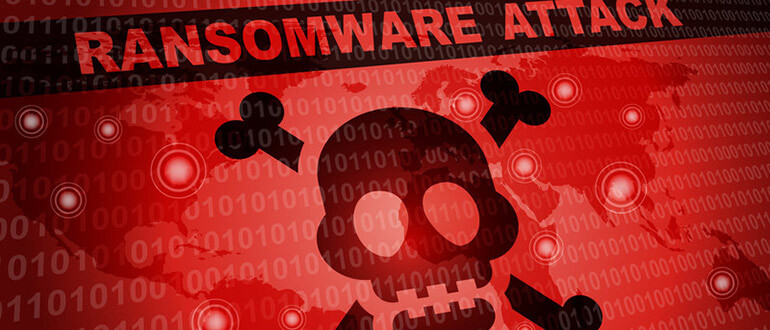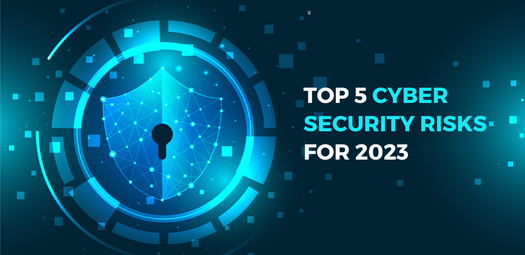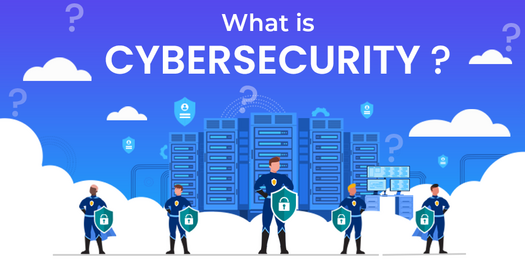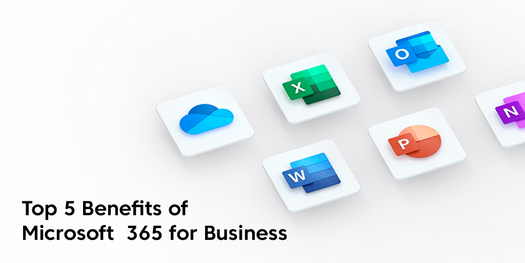
In recent years, ransomware has become one of the most significant cybersecurity threats for businesses of all sizes. Ransomware is a type of malicious software that cybercriminals use to encrypt the files on a victim's computer or network, making them inaccessible until the victim pays a ransom. In this article, we will explain what ransomware is, how it works, and why businesses should be concerned about the personal impact it could have.
What is Ransomware?
Ransomware is a type of malware that encrypts the files on a victim's computer or network, making them inaccessible until a ransom is paid. The ransomware typically displays a message on the victim's computer screen, demanding payment in exchange for a decryption key to unlock the files.
There are two main types of ransomware: encrypting and locker ransomware. Encrypting ransomware is the most common type of ransomware and encrypts the victim's files, rendering them unusable. On the other hand, Locker ransomware locks the victim out of their computer entirely, making it impossible to access any of their files.
How Does Ransomware Work?
Ransomware usually infects a computer or network through email attachments, software vulnerabilities, or malicious links. Once the ransomware infects a system, it searches for and encrypts important files, such as documents, images, and videos. The victim is then presented with a message demanding a ransom payment in exchange for a decryption key that will unlock their files.
Ransomware attacks are usually carried out by cybercriminals who demand payment in Bitcoin or other cryptocurrencies, as these transactions are difficult to trace. The ransom amount can range from a few hundred dollars to millions of dollars, depending on the target and the severity of the attack.
Why Should Businesses Be Concerned About Ransomware?
Ransomware attacks can have a significant personal impact on businesses, their employees, and their customers. Below are some of the reasons why businesses should be concerned about ransomware:
- Financial Loss: Ransomware attacks can cause significant financial losses to businesses. The cost of paying the ransom, lost productivity, and the cost of rebuilding IT systems can be substantial.
- Reputation Damage: Ransomware attacks can damage a business's reputation. If customer data is compromised, it can lead to a loss of trust and a damaged reputation.
- Legal Liability: If customer data is compromised in a ransomware attack, businesses can be held legally liable for any damages. This can result in costly lawsuits and legal fees.
- Business Disruption: Ransomware attacks can disrupt business operations, causing downtime, lost revenue, and lost productivity. In some cases, businesses may need to shut down operations entirely until the ransomware is removed.
- Personal Impact: Ransomware attacks can have a personal impact on employees and customers. If customer data is compromised, it can lead to identity theft, financial fraud, and other personal consequences. Employees may also experience stress, anxiety, and other emotional impacts.
How to Protect Your Business Against Ransomware?
There are several steps businesses can take to protect themselves against ransomware attacks. Below are some best practices for ransomware prevention:
- Backup Your Data: Regularly backing up your data can help protect against ransomware attacks. If your data is backed up, you can restore it from a backup without paying the ransom.
- Keep Your Software Up-to-Date: Regularly updating your software can help protect against vulnerabilities that ransomware can exploit.
- Use Antivirus and Anti-Malware Software: Antivirus and anti-malware software can help detect and prevent ransomware attacks.
- Train Employees: Educating employees about the risks of ransomware and how to prevent it can help reduce the risk of attacks.
- Implement Network Segmentation: Network segmentation involves separating a network into smaller segments, making spreading ransomware throughout the network more difficult.
- Use Multi-Factor Authentication: Implementing multi-factor authentication can make it more difficult for hackers to access your network and systems.
- Have a Response Plan: It is vital to have a plan in place in case your business falls victim to a ransomware attack. This plan should include steps for containment, recovery, and communication.
Ransomware is a significant cybersecurity threat that businesses of all sizes need to take seriously. The personal impact of a ransomware attack can be severe, including financial loss, reputation damage, legal liability, and personal consequences for employees and customers. However, by implementing best practices for ransomware prevention, businesses can reduce the risk of a successful attack and minimize the impact if one does occur. Regularly backing up data, keeping software up-to-date, using antivirus and anti-malware software, training employees, implementing network segmentation, using multi-factor authentication, and having a response plan are all critical steps that businesses can take to protect themselves against ransomware attacks.





